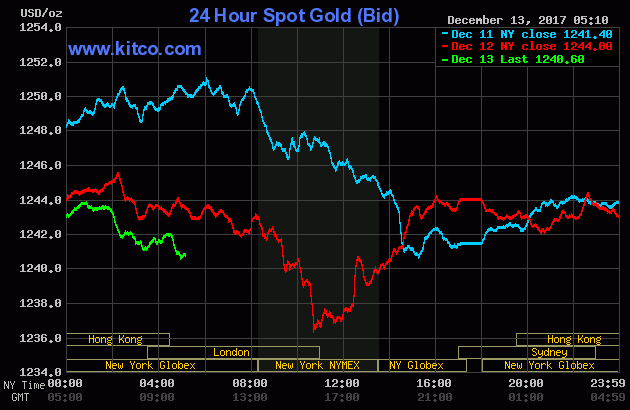Democrats won a fight for the U.S. Senate seat in Alabama. What does it mean for the gold market?
Yesterday, a special election for the United States Senate took place in Alabama. The vote was organized to fill the vacancy which arose when Jeff Sessions resigned from being a Senator to serve as U.S. Attorney General.
The results are surprising. A Democrat Doug Jones declared victory over Republican candidate Roy Moore. Jones won by about a 1.5 percent margin, or about 20,700 votes. If the results are certified, Jones will be the first Democrat to win a seat in the U.S. Senate in that state since 1992.
The results are positive for the gold market. They imply that the slim Republican majority will be even smaller. When Jones is sworn in (January 2018), the Republicans will only control 51 seats in the Senate. The reduced majority would make it harder for President Trump to introduce his economic reforms.
However, the Alabama outcome did not have a big impact on the U.S. dollar or the gold prices. Actually, the price of gold declined today, as one can see in the chart below. The likely reason is that the yellow metal remains under downward pressure from today’s FOMC meeting.
Chart 1: Gold prices over the last three days.
As a reminder, the Fed will release its newest monetary policy statement today. This will be followed by Yellen’s final press conference as the Fed Chair. An interest rate hike is widely expected. The Fed will also release the economic projections of the FOMC members. Now, the market expects 2-3 hikes in 2018, in line with the September projections. Hence, the market’s reaction will depend on the deviations from this outlook.
We believe that – due to the solid economic momentum, progress on tax cuts and tight labor market – there is more upside risk to the outlook for three interest rate increases next year. Thus, gold could struggle after the FOMC meeting.
On the other hand, the still subdued inflation may justify no substantial changes in the FOMC economic outlook. In 2015 and 2016, the price of gold rose after the December hikes, as these moves were accompanied by dovish rhetoric.
Will this time be different? It may be the case, as the macroeconomic outlook is distinct (not to mention personal changes in the Fed), but we will see. Stay tuned!
Disclaimer: Please note that the aim of the above analysis is to discuss the likely long-term impact of the featured phenomenon on the price of gold and this analysis does not indicate (nor does it aim to do so) whether gold is likely to move higher or lower in the short- or medium term. In order to determine the latter, many additional factors need to be considered (i.e. sentiment, chart patterns, cycles, indicators, ratios, self-similar patterns and more) and we are taking them into account (and discussing the short- and medium-term outlook) in our trading alerts.

